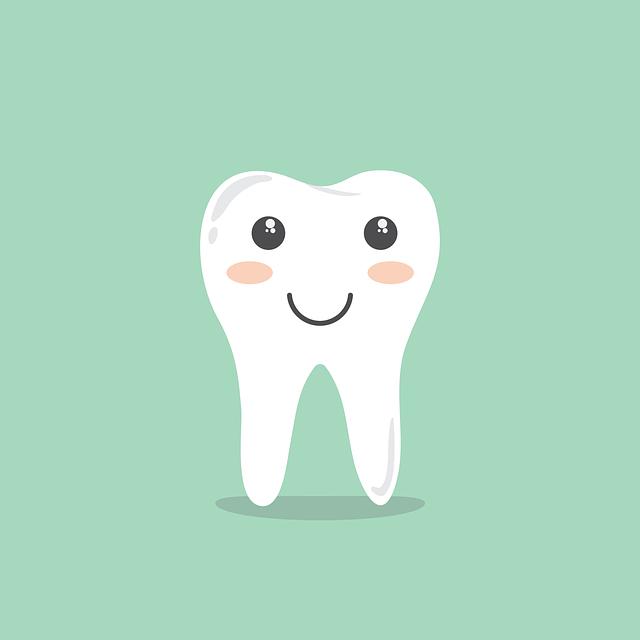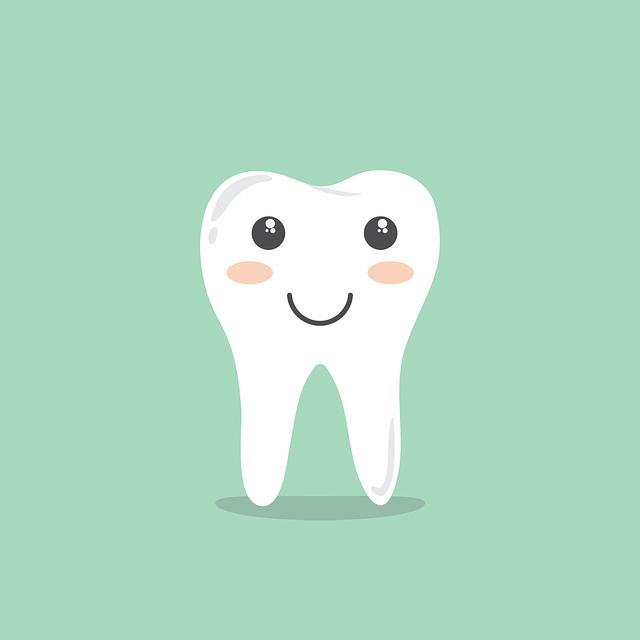Does Salt Kill Tooth Infection? Dental Remedies Explored
Welcome to the realm of dental remedies! In our quest for healthier teeth and pain-free smiles, we often stumble upon curious questions that demand our attention. Today, we dive into a topic that has intrigued many: the potential of salt as a killer of tooth infections. With a confident and knowledgeable approach, we unravel the truth behind this age-old remedy, leaving no room for ambiguity or repetition. So, join us on this enlightening journey as we explore the fascinating world of dental care and determine whether salt truly holds the power to combat tooth infections.
1. Understanding the Role of Salt in Dental Health: Debunking Myths and Exploring Remedies
When it comes to dental health, there are plenty of myths and misconceptions surrounding the role of salt. Let’s take a closer look at these myths and debunk them with factual information. We’ll also explore some remedies that can help maintain good dental health.
Myth 1: Salt is harmful to dental health
This is a common misconception. In fact, salt can be beneficial for dental health when used in moderation. Saltwater rinses have been used for centuries to alleviate gum inflammation and promote healing. The antimicrobial properties of salt can help reduce bacteria in the mouth, preventing tooth decay and gum disease.
Myth 2: Salt can replace regular brushing and flossing
While salt can provide temporary relief and aid in oral hygiene, it should never replace regular brushing and flossing. These practices are essential for removing plaque and food particles from the teeth and gums. Salt can be an additional tool in your oral care routine, but it should not be relied upon as the sole method of maintaining dental health.
Remedies for dental health using salt
- Saltwater rinse: Mix half a teaspoon of salt in a glass of warm water and swish it around in your mouth for 30 seconds. This can help reduce bacteria and soothe gum inflammation.
- Salt and baking soda paste: Create a paste by mixing salt and baking soda with a few drops of water. Gently brush your teeth with this paste to remove surface stains.
- Saltwater gargle: Dissolve a teaspoon of salt in warm water and gargle it to alleviate throat infections and reduce inflammation.
By understanding the role of salt in dental health and debunking these myths, we can make informed decisions about our oral care routines. Remember, maintaining good dental health involves a combination of regular brushing, flossing, and incorporating remedies like salt in moderation.

2. The Science Behind Salt as an Effective Dental Remedy: Separating Fact from Fiction
The use of salt as a dental remedy has been a topic of debate for many years. In this section, we will explore the science behind salt and separate fact from fiction.
1. Salt as an antimicrobial agent: One of the main reasons salt is often recommended for dental health is its antimicrobial properties. Saltwater rinses can help reduce the number of bacteria in the mouth, preventing the formation of plaque and tartar. Salt also creates an inhospitable environment for bacteria to thrive.
2. Salt as a natural disinfectant: Saltwater rinses can also help in reducing inflammation and healing wounds in the mouth. The salt solution acts as a natural disinfectant, promoting the healing process for gum sores, canker sores, and other oral irritations.
3. Salt as a teeth whitening agent: While some claim that salt can whiten teeth, there is limited scientific evidence to support this. Salt may help remove surface stains, but it is not as effective as professional teeth whitening treatments or whitening toothpaste. It is important to consult a dentist for proper teeth whitening solutions.
Overall, salt can be an effective dental remedy when used properly. However, it is important to note that it should not replace regular dental care and professional advice. Consult with a dentist to determine the best oral hygiene routine for your individual needs.

3. Unveiling the Truth: Can Salt Effectively Kill Tooth Infections?
Many people have heard about the supposed benefits of using salt to treat tooth infections. Salt, specifically sea salt, has long been regarded as a natural remedy for various ailments due to its antibacterial properties. However, when it comes to using salt to kill tooth infections, the truth may not be as clear-cut as some claim it to be.
Here are some important points to consider:
- Antibacterial properties: Salt does possess antibacterial properties, which means it can help to inhibit the growth of bacteria in the mouth. This can be beneficial in preventing further infection or reducing the severity of symptoms.
- Temporary relief: Gargling with a saltwater solution can provide temporary relief from tooth infection symptoms such as pain and swelling. The warm saltwater helps to reduce inflammation and draw out any infection present.
- Not a cure-all: While salt can be a helpful adjunct treatment, it is important to note that it is not a substitute for professional dental care. Saltwater rinses cannot fully eliminate the infection or address the underlying cause. Seeking prompt dental attention is crucial.
In conclusion, salt can have some positive effects in managing tooth infections, but it should not be relied upon as a standalone treatment. Consulting with a dentist and following their recommended course of action is essential for effectively treating tooth infections.

4. Exploring the Healing Properties of Salt: A Closer Look at its Potential in Dental Care
Salt has long been recognized for its healing properties in various aspects of health, and dental care is no exception. The potential of salt to promote oral health has gained attention in recent years, with studies revealing its effectiveness in several areas. Here, we delve deeper into the healing properties of salt and its potential benefits for dental care.
1. Reducing inflammation: Saltwater rinses have been used for centuries to alleviate gum inflammation and soreness. The natural antibacterial properties of salt help to kill harmful bacteria in the mouth, reducing swelling and promoting healing.
2. Fighting infection: Salt acts as a natural disinfectant, making it effective in fighting oral infections. Rinsing with a saltwater solution can help to eliminate harmful bacteria and reduce the risk of developing infections, such as gingivitis.
3. Promoting healing: Saltwater rinses can aid in the healing process after dental procedures, such as tooth extractions or oral surgeries. The salt helps to cleanse the area and prevent infection, while also promoting tissue regeneration and reducing discomfort.
Incorporating salt into your dental care routine can be as simple as preparing a saltwater rinse at home. Dissolve half a teaspoon of salt in warm water and swish it around your mouth for 30 seconds, focusing on the affected areas. Remember, however, that salt should not replace regular brushing and flossing, but rather serve as a complementary measure to maintain optimal oral health.
5. Salt as a Natural Antiseptic: Examining its Impact on Tooth Infections
Salt has long been recognized for its natural antiseptic properties, making it a powerful tool in combating tooth infections. Its impact on oral health cannot be understated, as it effectively kills bacteria and reduces inflammation. Here are some key ways in which salt can help in treating tooth infections:
- Kills bacteria: Salt acts as a natural disinfectant, effectively killing harmful bacteria that may be causing the infection. Its ability to penetrate the bacterial cell wall disrupts its functioning and ultimately leads to its destruction.
- Reduces inflammation: Tooth infections often result in painful swelling and inflammation. Salt can help alleviate these symptoms by drawing out excess fluid and reducing the swelling. Gargling with a saltwater solution can provide relief and promote healing.
- Supports wound healing: Salt has been shown to promote the healing of wounds, including those caused by tooth infections. It helps to cleanse the affected area, prevent further infection, and stimulate the growth of new tissue.
While salt can provide temporary relief and aid in the treatment of tooth infections, it is important to consult a dental professional for a proper diagnosis and comprehensive treatment plan. They can assess the severity of the infection and recommend appropriate medication or procedures to ensure long-term oral health.
6. The Power of Sodium Chloride: How Salt Can Complement Traditional Dental Treatments
Sodium chloride, commonly known as table salt, possesses remarkable properties that can effectively complement traditional dental treatments. Its unique abilities make it a valuable tool in maintaining oral health. Here are some ways in which salt can enhance dental care:
- Natural antibacterial properties: Salt has been used for centuries as a natural disinfectant, capable of killing harmful bacteria in the mouth. By rinsing with a saltwater solution, known as saline solution, individuals can help reduce the risk of infections and promote faster healing after dental procedures.
- Relieving inflammation and pain: Saltwater rinses can alleviate gum inflammation and soothe oral discomfort. The mild saline solution can reduce swelling, ease soreness, and provide temporary relief from toothaches or sore gums.
- Promoting oral hygiene: Salt acts as an abrasive agent that can help remove plaque and bacteria from the teeth, aiding in the prevention of cavities and gum disease. Its gentle exfoliating properties make salt an excellent addition to toothpaste or mouthwash formulations.
While salt cannot replace professional dental care, incorporating it into daily oral hygiene practices can be highly beneficial. It is important to consult with a dentist to determine the appropriate use and concentration of salt for individual needs. With its natural antibacterial properties and ability to relieve inflammation, salt can be a powerful ally in maintaining good dental health.
7. Integrating Salt Remedies into Your Oral Health Routine: Tips for Maximum Effectiveness
Salt remedies can be a powerful addition to your oral health routine, providing maximum effectiveness when integrated correctly. Here are some tips to help you make the most of salt remedies:
1. Choose the right type of salt: Opt for natural sea salt or Himalayan pink salt, as they contain essential minerals and trace elements that can benefit your oral health.
2. Saltwater rinse: Prepare a saltwater rinse by dissolving half a teaspoon of salt in a glass of warm water. Gargle with this solution for about 30 seconds, ensuring it reaches all areas of your mouth. This simple remedy can help alleviate gum inflammation, reduce bacteria, and provide relief from minor mouth irritations.
3. Salt toothpaste: Consider using a salt-based toothpaste to enhance your oral hygiene routine. Look for toothpaste that contains salt as an active ingredient, as it can help neutralize acids in the mouth, promote remineralization of the teeth, and reduce plaque buildup.
4. Saltwater mouthwash: Another effective salt remedy is a saltwater mouthwash. Mix half a teaspoon of salt in a cup of warm water, swish it around your mouth for about a minute, and then spit it out. This natural mouthwash can freshen your breath, soothe sore gums, and help maintain a healthy oral pH balance.
Remember to consult with your dentist before incorporating any new remedies into your oral health routine, especially if you have any underlying dental conditions. With the right approach, integrating salt remedies can be a valuable addition to your oral care regimen, contributing to improved overall oral health.
8. Advantages and Limitations: Evaluating the Pros and Cons of Using Salt for Tooth Infections
When it comes to treating tooth infections, using salt as a natural remedy has both advantages and limitations. Let’s explore the pros and cons of incorporating salt into your oral care routine:
Advantages:
- Potential antibacterial properties: Salt has been known for its antibacterial properties, which can help kill harmful bacteria in the mouth. This can be beneficial in reducing the infection and promoting healing.
- Easy accessibility and affordability: Salt is readily available in most households and is an inexpensive remedy compared to over-the-counter dental products or prescription medications.
- Natural and chemical-free: Unlike some commercial dental products that may contain artificial ingredients or chemicals, using salt for tooth infections is a natural and chemical-free option.
Limitations:
- Effectiveness may vary: The effectiveness of salt as a treatment for tooth infections may differ from person to person. While some individuals may experience relief, others may not find it as effective.
- Potential temporary relief: Salt may provide temporary relief by reducing inflammation and pain, but it may not address the underlying cause of the infection. Consulting a dentist is still crucial for proper diagnosis and treatment.
- Not suitable for all cases: In certain cases, such as severe infections or abscesses, relying solely on salt may not be sufficient. It is important to seek professional dental care for appropriate treatment options.
It’s essential to weigh the pros and cons before deciding to use salt for tooth infections. While it may offer some benefits, it is always best to consult with a dental professional for a comprehensive evaluation and appropriate treatment.
9. From Mouthwash to Saltwater Rinses: Practical Applications of Salt in Dental Care
Salt has long been recognized for its practical applications in dental care. From mouthwash to saltwater rinses, incorporating salt into your oral hygiene routine can provide a range of benefits.
One of the most common uses of salt in dental care is as a natural mouthwash. A simple mixture of warm water and salt can help combat bad breath, reduce inflammation, and promote healing of oral sores. The salt acts as a natural disinfectant, killing bacteria and neutralizing odors in the mouth. To use salt as a mouthwash, simply dissolve half a teaspoon of salt in a cup of warm water, swish it around your mouth for 30 seconds, and spit it out.
Saltwater rinses are another practical application of salt in dental care. These rinses can be used to soothe gum inflammation, relieve pain from toothaches, and aid in the healing of oral wounds. The saltwater solution helps to reduce swelling and kill bacteria, promoting a healthier oral environment. To make a saltwater rinse, dissolve one teaspoon of salt in a cup of warm water and swish it around your mouth for about a minute before spitting it out.
Incorporating salt into your dental care routine can be a cost-effective and natural way to maintain oral health. Whether you choose to use it as a mouthwash or as a saltwater rinse, the benefits of salt in dental care are numerous. Remember to consult with your dentist for personalized advice on how to best incorporate salt into your oral hygiene routine.
10. Expert Insights: Dentists’ Perspectives on the Efficacy of Salt in Treating Tooth Infections
When it comes to the efficacy of salt in treating tooth infections, dentists offer valuable insights based on their professional expertise. Here are some key points to consider:
- Saltwater rinses can provide temporary relief: Dentists agree that rinsing with warm saltwater can help alleviate pain and reduce inflammation associated with tooth infections. The saltwater acts as a natural disinfectant, promoting healing and soothing discomfort.
- Not a standalone treatment: While saltwater rinses can offer symptomatic relief, dentists emphasize that they are not a substitute for professional dental care. Tooth infections require proper diagnosis and treatment, which may involve antibiotics, root canal therapy, or extraction.
- Maintaining oral hygiene: Dentists recommend incorporating regular brushing, flossing, and professional cleanings into your oral care routine to prevent tooth infections. Saltwater rinses can be a supplementary measure to support oral health but should not replace proper dental hygiene practices.
- Consult your dentist: If you suspect a tooth infection or are experiencing persistent pain, it is crucial to seek professional advice. Dentists can accurately diagnose the issue and recommend appropriate treatment options tailored to your specific condition.
Remember, while saltwater rinses can provide temporary relief, it is essential to consult a dentist for a comprehensive evaluation and treatment plan to effectively address tooth infections.
Frequently Asked Questions
Q: Does salt kill tooth infection?
A: Yes, salt has been recognized for its potential to kill tooth infections due to its antibacterial properties.
Q: How does salt work in treating tooth infections?
A: Salt, specifically sea salt or Himalayan salt, can help draw out infection and reduce inflammation by creating an inhospitable environment for bacteria to thrive.
Q: Is salt a reliable remedy for tooth infections?
A: While salt can offer temporary relief and aid in the healing process, it is essential to consult a dentist for a proper diagnosis and treatment plan. Salt should be considered a supplemental remedy rather than a standalone solution.
Q: Are there any specific instructions for using salt to treat tooth infections?
A: Yes, to utilize salt as a dental remedy, dissolve half a teaspoon of salt in warm water. Gargle the solution in your mouth for about 30 seconds before spitting it out. Repeat this process several times a day until symptoms improve.
Q: Can salt completely eliminate a tooth infection?
A: Salt may help alleviate symptoms and reduce bacterial growth, but it is unlikely to completely eliminate a tooth infection. Seeking professional dental care is crucial for proper treatment and to prevent the infection from worsening.
Q: Are there any risks or side effects associated with using salt for tooth infections?
A: When used as directed, salt is generally safe for oral use. However, excessive use of saltwater rinses may lead to mouth dryness or irritation. It is advisable to follow the recommended dosage and consult a dentist if any adverse effects occur.
Q: What other dental remedies can be helpful in treating tooth infections?
A: Apart from salt, other dental remedies such as clove oil, garlic, and hydrogen peroxide may provide temporary relief from tooth infections. However, it is crucial to consult a dentist for a thorough examination and appropriate treatment.
Q: Can tooth infections be prevented altogether?
A: While it is not always possible to prevent tooth infections, maintaining good oral hygiene practices, such as regular brushing, flossing, and dental check-ups, can significantly reduce the risk.
Q: Should I rely solely on home remedies for tooth infections?
A: Home remedies may offer temporary relief; however, they cannot replace professional dental care. Consulting a dentist is essential to accurately diagnose the infection and receive appropriate treatment to prevent further complications.
Q: What should I do if I suspect a tooth infection?
A: If you suspect a tooth infection, it is crucial to schedule an appointment with a dentist as soon as possible. Only a dental professional can provide an accurate diagnosis and recommend the most suitable treatment plan for your specific situation.
In Summary
In conclusion, the question of whether salt can effectively kill tooth infections has been thoroughly explored. After examining various dental remedies, it is clear that salt can indeed play a role in alleviating the symptoms of a tooth infection. Its natural antibacterial properties can help reduce inflammation and fight off harmful bacteria within the oral cavity. However, it is important to note that salt alone may not be a complete solution and should be used in conjunction with proper dental care and professional treatment. Regular brushing, flossing, and visiting a dentist remain crucial for maintaining optimal oral health. Remember, while salt can provide temporary relief, seeking professional dental advice is always recommended for a thorough and effective treatment plan.






